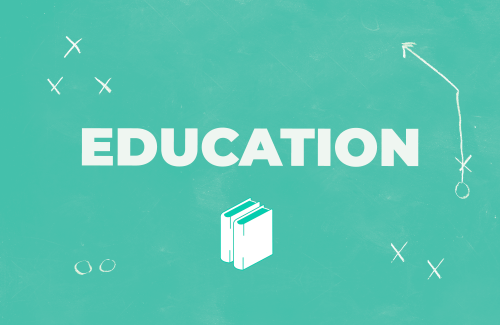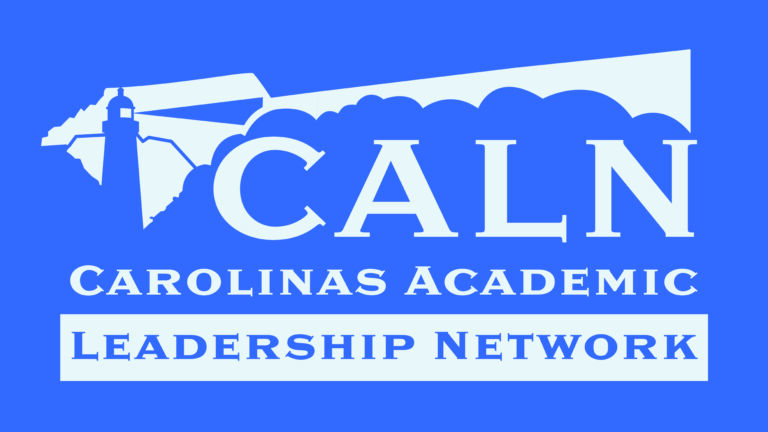An Education Freedom Agenda
Effective Education for Every Student
These 19 recommendations are drawn from the Palmetto Promise Playbook report. You can view our policy agenda for other issues by clicking below.
Energy | Healthcare | Tax & Budget | Work, Justice, & Quality of Life
EXPAND EDUCATION CHOICE
- Adopt an Education Scholarship Account (ESA) law that will provide qualified students with online accounts which can be used to customize their educational experience at no cost to them. ESAs are effective in other states, serving over 20,000 students in Florida, Arizona, and Mississippi during the 2019-20 school year. They can work here.
- Shift virtual education to a true Course Catalog including more courses, more providers, higher standards, and dependable funding from existing sources. The State Department of Education operates a virtual program under the banner of VirtualSC, and several of the larger school districts had virtual programs in place before the arrival of COVID. But, a true Course Catalog means multiple providers and a wide variety of courses. Our goal should be every course available to every student in every county in South Carolina. That will require a very different approach and funding, at least a portion of it, to follow the student. Louisiana is a model, with over 15,000 course offerings, a 700% increase from just a few years before.
- Reimburse homeschoolers for education expenses. Tax credits or tax credit scholarships could be used to reimburse parents for some or all of their homeschool expenses. Homeschool accountability organizations are reporting record growth. One organization reports an increase of 35% over last school year. Homeschooling is challenging and expensive for a family—normally one parent must be out of the workforce and serve as teacher—and curricula and supplies must come out of pocket. If parents could receive some relief for homeschool expenses, it would be some consolation for them while their taxes go to support schools they do not use. Even $1,000 would go a long way to assisting these families who take pressure off public schools but still pay taxes to support them.
- Move charter schools—which are public schools—out of the Education Improvement Act (EIA) and ensure that they are funded by formula and in the same manner and to the same level as other public schools, taking care to provide adequate capital and transportation funding. Though they serve 40,000 students in South Carolina, charter schools remain in budget proviso status, not permanent status. This must change. With dedicated and dependable funding, charters can reach more rural areas and build a true community around their schools.
- Allow the fast-tracking of charter applications that replicate successful existing charters. The more innovative charter authorizers are cutting red tape and breaking down ill-conceived barriers to the establishment of charter schools. Applications that mirror successful models should not be resisted as has been the case in the past, but encouraged.
- Adopt a true open public school enrollment statute that would allow parents to self-assign their children to the public school of their choice without question and without charge. Children should not be assigned to a school based on the location of their parents’ house, or the value of it, but on what school best meets his or her needs. Colorado and Florida have shown the way to craft policies that work for everyone.
- Support independent appraisals of student progress. A unique idea coming out of the COVID experience is to provide all families a tool that has been used by homeschool families for nearly as long as there has been homeschooling: an independent appraisal of their child’s learning. Homeschool parents use these assessments as a check on the education they are providing. But all parents could use an assessment that is independent of those doing the teaching. Recommended sources for these services include Kumon, the College Board, BJU Press, and Bayside School Services.
EMPOWER EDUCATORS
- Institute pay bands for teacher salaries to reward excellence, not just time in grade. The single largest school district expense is teacher salaries. Continuing to reward only credentials and years of experience is not a sensible way to keep outstanding teachers in the classroom. Dare we say it?; four words: pay great teachers more.
- Provide more alternatives to state teacher certification to reduce restrictions on the teacher talent market. We have made a start, but more needs to be done to attract brilliant minds who have excelled in other fields into the teaching profession without insulting red tape. Adjunct certifications and micro-credentialing are options.
- Provide a portal for parents to evaluate the performance of the teachers of their children. Few college students register for a class without consulting Rate My Professor or a similar evaluation site. Matching a younger student to the right teacher is even more critical.
- Require more transparency on the adequacy of preparation provided by colleges of education in state universities. The graduates of which colleges of education are scoring best on the teachers’ exam? Which colleges fare worst for preparing their students for the classroom and mastering the content? The taxpaying public needs to know. Enact full reciprocity for licensed out-of-state teachers. South Carolina is not in the most restrictive category, but also not among the most likely to recognize out-of-state licenses. With hundreds of slots open at any given time, the teaching profession should not be a cartel… and South Carolina does not have a monopoly on adequate preparation.
INCREASE INNOVATION
- Streamline education funding along the lines of Palmetto Promise’s Funding Our Children for Success, so that all education funding is student-centered rather than program-based. If we want “base student cost” or the broader “state aid to classrooms” category to mean something, collapse all categories of funding and empower districts—and even principals—to spend it best.
- Provide charter-like expenditure flexibility for school districts that have proven themselves to be effective and meet transparent, fair student performance and financial best-practice benchmarks.
- Bridge the digital divide with a comprehensive plan to provide fast internet to rural and unserved areas perhaps through the use of a lottery system that would allow private providers the opportunity to bid.
- Consolidate tiny and shrinking school districts with the goal of achieving greater efficiency, through regional cooperation, a more stable funding base, and more accountability.
- Promote micro-schools and family learning PODS. For micro-schools, think one-room schoolhouse on steroids. Groups of fewer than fifteen students meet anywhere, from homes to churches to businesses. Teachers in PODS are actually “learning guides.” A national network of micro-schools known as Prenda now has over 200 schools. PODS or “Parent-Organized Discovery Sites,” are created when about three to six families hire a teacher, and/or the parents teach. Some school districts and YMCAs host PODS. A similar concept has existed for years with homeschool families known as co-ops or learning centers. We must clarify existing laws to protect this important innovation from unnecessary regulation.
OTHER NEEDED ACTIONS
- Address the challenges of higher education in the state, including the too-limited role of the Commission on Higher Education, the geometric growth of state university tuition, and the myth that a four- year baccalaureate degree is required for success in career and life. The influence of the influx of South Carolina Education Lottery funds on tuition should be reviewed as well. In its first year, the lottery brought in $81 million. For 2017-2018, income (including interest and unclaimed prizes) was $437 million.
- Protect free speech on college campuses, by requiring South Carolina public colleges and universities to adopt The Chicago Statement. The Citadel took action in 2016 and others are considering adopting the Statement. Our neighbor to the north has taken free speech up a notch. Just last year, North Carolina State University scrapped its old, politically correct campus speech code in favor of a free speech approach. At this writing, with NCSU added, the State of North Carolina has an amazing eleven universities that have attained the highest rating from the free speech watchdog Foundation for Individual Rights in Education (FIRE).
- Stand up for America’s Founding. Too many state universities are skirting the law that requires that each student pass a course on the Declaration of Independence, the Federalist papers and the Constitution to graduate with a baccalaureate degree. That law should be enforced. The state should also affirmatively ban any K-12 curriculum based on the faulty and revisionist “1619 Project,” and require school districts to list on their district websites the specific curricula they use in each school.







